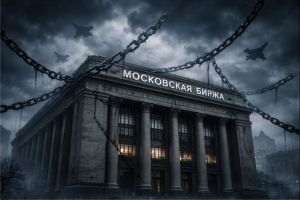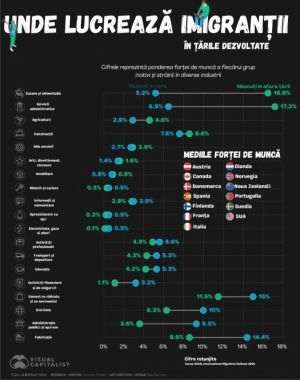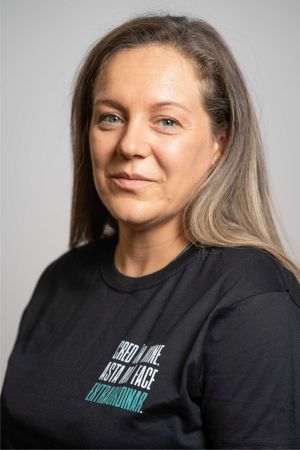The major powers are struggling to resolve the conflict that has been raging in Syria for more than four years now, but their efforts have been "rewarded": the protests on the edge of the Syrian state have become a devastating civil war, which spread to Iraq and Lebanon, international terrorism has been reinvigorated under the Iraqi - Syrian ISIL/ISIS brand and, metamorphosed into DAESH (the Arabic acronym for ISIL), has proliferated further, to Libya and Nigeria, and Europe has become overwhelmed by waves of Syrian and African refugees.
During this time, Romania had the strength and the wisdom to stay neutral, despite the outside pressure which insistently advised Bucharest to suspend its diplomatic relations with Damascus, the denouncing of the criminal regime led by Syrian president Bashar al-Assad, and other actions of with a tone of hostility that were lacking discernment. Starting in 2011 and up until now, only two member states of the European Union have kept their embassies open in Syria: Romania and the Czech Republic (the Romanian party has constantly mentioned the demographic data of the traditional relation with this Arab country: over 20,000 Syrian students have studied in Romania, in Syria there is a community of Romanian citizens which is estimated to count between 5,000 and 10,000 individuals, Syrian ethnic members account for the majority of the Arabian community in Romania etc.).
The international priority of the moment is putting a damper on the expansion of ISIS, as demonstrated by Russia's recent ambition to get together a regional coalition for that purpose, the air strikes conducted since back in 2014 by the US against the areas controlled by the terrorist organization in Iraq and Syria, the joint Turkish-American offensive recently discussed by Mevlut Cavusoglu, the Turkish minister of foreign affairs. But both the ISIS phenomenon, as well as the flow of Syrian refugees in Europe are symptoms of the conflict in Syria, which nobody has truly made it their goal to resolve peacefully, not even the regime in Damascus (which, honestly and justifiably, can not concede to share power with opposition factions that are financed from abroad, by countries and sheiks that have interests that are hostile to a strong Syrian state). As a result, the expected neutralization of the ISIL and the redistribution of the refugees in EU member states would generate only a temporary relaxation of the effects induced internationally by the Syrian civil war, without eliminating their recurrence potential.
The agreement concluded in July between the major powers and the Islamic Republic of Iran to resolve the so-called Iranian nuclear dossier changes the approach of the situation in the Middle- East strategically by the interested parties and secondarily, opens a window of opportunity for the Romanian diplomacy as well, when it comes to Syria. Romania does not have the means nor the reason to contribute to fighting ISIS, but it can make a name for itself as a political mediator in the Syrian civil war, because in Damascus, Romania still matters and it is viewed as a desirable proxy for a dialog which would bring the Syrian regime and the US closer. The successes that the Romanian diplomacy achieved in the Middle East in the 70s, confirmed even by Israeli declassified documents and by memoirs written by Israeli diplomats, can be used as evidence of that.
The time is now right for such a diplomatic action, including because Turkey's ability to get involved has now reached its upper limits, because of several factors: prime-minister and subsequently president Recep Tayyip Erdogan can not be an accepted mediator, because he has led a policy of open hostility towards the Syrian regime, which however received very weak support from the Turkish public opinion. The elections in Turkey held in June this year have brought about for his party, AKP, the loss of the absolute majority in the Parliament and the unprecedented electoral rise of the pro-Kurdish entity HDP, which makes even more problematic the bombing by Turkish aircraft of the Syrian Kurds, who are fighting the Islamic militants in the border area between Syria and Turkey and who are the main allies of the US against the ISIS in the area.
Seizing the current opportunity would mean minister Bogdan Aurescu putting together and coordinating a team of people whose knowledge of the Middle East issues is beyond dispute, who currently hold key positions along the coordinates of the "Syrian case", such as George Maior (ambassador in the US), Radu Onofrei (ambassador in Turkey) and Dănuţ Sandovici (ambassador in Syria). With that kind of team, the Romanian Ministry of Foreign Affairs can perform a large scale diplomatic brokerage, in low risk circumstances, which would bring Romania foreign policy capital, which can easily be "invested" later on multiple "diplomatic markets": towards reinvigorating the traditional relations with the Arab countries, towards improving the strategic partnership with the US, bolstering Romania's position within NATO and the European Union, even for attracting a little more attention from China.


























































